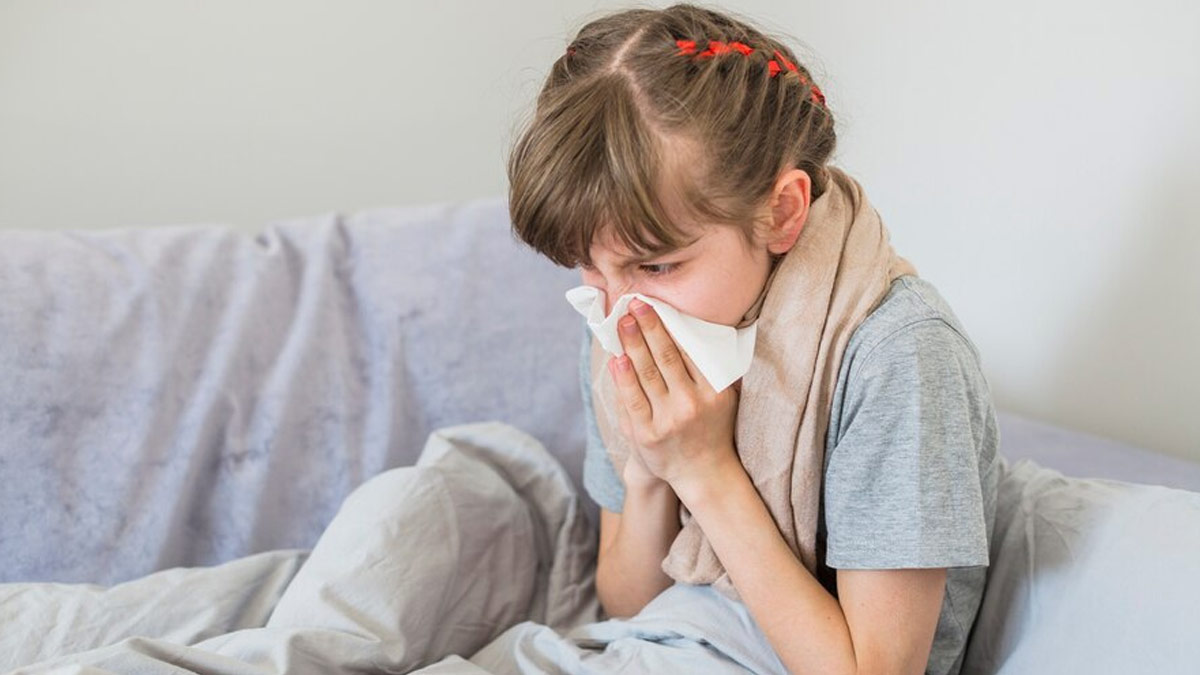
Allergies in children have become more common in recent years, affecting millions globally. They can cause a range of reactions, from mild discomfort to life-threatening anaphylaxis. Parents and caregivers should understand the most common triggers, symptoms, and management strategies for allergies. We spoke to our expert Dr Chandra Sekhar Singha, Consultant, MBBS, MD - Paediatrics, Madhukar Rainbow Children’s Hospital, who listed triggers of allergies and how to manage them.
Table of Content:-

Allergies in children occur when their immune system overreacts to a substance that is normally harmless. This can lead to various symptoms, such as sneezing, itching, hives, and difficulty breathing. Allergic reactions can occur anywhere in the body, such as the skin, eyes, stomach lining, nose, sinuses, throat, and lungs. These are the areas where the body's immune system cells are located to defend against germs that are inhaled, ingested, or touch the skin.
Common Triggers Of Allergies
Dr Singha listed common triggers of allergies as follows:
Food Allergies
Some of the most common food allergies in children include peanuts, tree nuts, milk, eggs, soy, wheat, and fish. Symptoms of food allergies can range from mild hives to severe anaphylaxis.

Environmental Allergens
Dr Singha said, "Children can also develop allergies to environmental allergens, such as pollen, dust mites, mould, and pet dander. Seasonal allergies are common in people with allergies to pollen."
Insect Stings and Bites
Bee stings and insect bites can cause allergic reactions in some children, leading to symptoms, such as swelling, itching, and difficulty breathing in severe cases.
Medications
Dr Singh added, “Certain medications, such as antibiotics and Nonsteroidal Anti-inflammatory Drugs (NSAIDs), can also trigger allergic reactions in children. It is important to inform your healthcare provider of any known allergies before starting a new medication.”
Also Read: From Itchy Skin Rashes To Swelling In The Mouth, Warning Signs Of Wheat Allergy
Common Reactions To Allergies
According to Paediatrics Child Health, around 30-35% of children are impacted by allergic diseases, and the number of kids with these conditions has been going up in the last few years. We asked Dr Singha about the common reactions to allergies and here’s what he said:
Skin Reactions
Common allergy symptoms include hives, eczema, and itching. These can appear as red, itchy rashes or swelling.

Respiratory Symptoms
Allergies often affect the respiratory system, causing symptoms, such as sneezing, nasal congestion, coughing, and wheezing. Moreover, it can even trigger asthma attacks in severe cases.
Gastrointestinal Symptoms
Food allergies can cause stomach cramps, nausea, vomiting, and diarrhoea shortly after eating the allergenic food.
Anaphylaxis
Dr Singha said, “This is a serious, life-threatening allergic reaction that can affect multiple organs in the body. Symptoms may include difficulty breathing, swelling of the face and throat, a drop in blood pressure, and loss of consciousness. Anaphylaxis requires immediate medical attention.”
Also Read: Toddler Food Allergy: How To Know Your Toddler Is Allergic To Certain Foods
How To Manage Allergies

Allergen Avoidance
The primary strategy for managing allergies in children is to identify and avoid allergens. Dr Singha said, “This means carefully reading food labels and informing schools and caregivers of any dietary restrictions for food allergies. On the other hand, environmental allergens may require measures, such as using air purifiers and allergen-proof bedding covers.”
Medications
Dr Singha noted, “Antihistamines and decongestants can help relieve mild allergy symptoms. For severe allergies, epinephrine auto-injectors are essential for immediate use in case of anaphylaxis. Also, allergy medications should be prescribed and administered under the supervision of a healthcare provider.”
Immunotherapy
In cases of severe allergies with frequent or life-disrupting symptoms, an allergist may recommend allergen immunotherapy (allergy shots or oral tablets). This treatment can help desensitise the child's immune system to specific allergens over time.
Emergency Action Plan
Dr Singha highlighted, “Children with severe allergies should have an emergency action plan in place. This plan should outline the steps to take in case of an allergic reaction, including how and when to use an epinephrine auto-injector.”
Bottomline
Dr Singha concluded, “Allergies in children are a growing concern, but with proper management and prevention strategies, children with allergies can lead healthy, fulfilling lives. Understanding common triggers, recognising symptoms, and implementing effective management techniques are crucial steps in ensuring the well-being of children with allergies.”
[Disclaimer: This article contains information provided by a registered healthcare professional and is for informational purposes only. Hence, we advise you to consult your expert if you notice any allergic reactions.]
Also watch this video
How we keep this article up to date:
We work with experts and keep a close eye on the latest in health and wellness. Whenever there is a new research or helpful information, we update our articles with accurate and useful advice.
Current Version